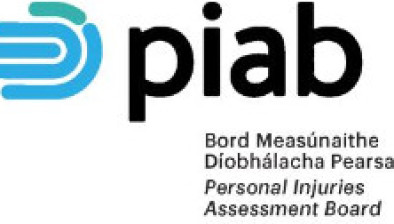High Court: Personal injuries claim struck out against Swedish airport for want of jurisdiction

Killian Flood BL
The High Court has struck out a personal injuries claim against a Swedish airport, stating that Ireland did not have jurisdiction to hear and determine the case. The plaintiff had pleaded that the Montreal Convention and Brussels Regulation Recast granted jurisdiction in the matter.

About this case:
- Citation:[2021] IEHC 394
- Judgment:
- Court:High Court
- Judge:Ms Justice Nuala Butler
However, Ms Justice Nuala Butler held that there was nothing in the Brussels Regulation Recast which conferred jurisdiction on Ireland in the plaintiff’s case. In reaching this decision, the court noted that the Montreal Convention only granted jurisdiction to Ireland in cases involving airline carriers and not airports.
Background
The plaintiff was disembarking a flight at Östersund Airport in Northern Sweden in November 2017. She claimed to have slipped and fallen on ice, resulting in a severe injury to her arm. Accordingly, she issued personal injuries proceedings against the air carrier, SAS AB, and the airport owner, Swedavia AB. The plaintiff based her entitlement to join the defendants on the Montreal Convention, the Regulation (EC) 2027/97 and Article 7 of the Brussels Regulation Recast.
The air carrier did not contest jurisdiction in the case, as the Montreal Convention provided that it was strictly liable to the plaintiff for any injuries up to a limited sum. It was noted by the court that the liability for SAS was dependent on it being established that the plaintiff was disembarking the plane at the time of the accident.
However, Swedavia argued that it was not properly joined to the proceedings as it was not an “air carrier” for the purposes of the Montreal Convention and the Regulation 2027/97. It was claimed that liability for Swedavia would depend on Swedish laws regarding occupier’s liability and, accordingly, the proper jurisdiction to sue the airport was Sweden.
Swedavia subsequently issued a motion seeking to strike out the plaintiff’s claim against it on the basis that it had not been properly served and that Ireland was not the correct jurisdiction to determine the claim.
In contesting the motion, the plaintiff argued that Ireland had jurisdiction under the Brussels Regulation Recast. Specifically, it was submitted that the special rules under Articles 7 and 8 of the Recast Regulation conferred jurisdiction on the Irish courts. The plaintiff also relied on the fact that SAS had served a notice for indemnity and contribution on Swedavia to say that jurisdiction should be accepted in the case.
Under Article 7, a plaintiff may sue in another Member State a) in matters relating to contract, in the place of performance of obligations or b) in matters relating to tort, in the place where the harmful event occurred. Under Article 8, a defendant could be sued in another Member State a) where he was one of a number of defendants in a closely connected claim or b) as a third party in a court seised of original proceedings.
High Court
The court began by holding that the Montreal Convention and related legislation did not apply to Swedavia because it was an airport rather than an air carrier. The court then stated some of the fundamental principles of jurisdiction under the Brussels Regulation Recast, noting that defendants should ordinarily be sued in their own jurisdiction. As such, the court had to apply the special jurisdictional rules in a restrictive manner (Leo Laboratories v. Crompton [2005] 2 IR 225). It was also stated that the onus was on the plaintiff to establish that Ireland was an appropriate jurisdiction.
The court first considered the plaintiff’s submissions regarding jurisdiction under Article 7 of Brussels Recast. The plaintiff submitted that her e-ticket included the headings “Taxes, Fees and Charges” and “Domestic/International Fee.” It was therefore suggested by the plaintiff’s solicitor that a contractual relationship existed between the plaintiff and the airport. The court said there was no basis for this submission because it was established in evidence that the airport did not charge any monies to passengers. Even if a contract existed, it was noted that the place of performance would be Sweden.
The court also rejected submissions that jurisdiction was conferred to Ireland under Article 7(2), on the basis that the plaintiff suffered ongoing injuries in Ireland. Applying Case C-364/93 Marinari and Réunion Europénne v. Spliethoff’s Bevrachtingskantoor BV Case C-51/97, the court held that Article 7(2) did not extend to places where an adverse consequence was felt by a plaintiff. The court said that a tortfeasor was not guilty of an ongoing tort simply because a plaintiff continued to suffer from a negligent action. As such, Sweden was the proper jurisdiction under Article 7(2).
The court went on to consider if Article 8 conferred jurisdiction on the Irish courts, even though it had not been pleaded in the plaintiff’s summons. The court held that Article 8(1) only applied where proceedings were brought against multiple defendants in the place where any one defendant was domiciled. In this case, both defendants were Swedish and the case was taken in Ireland, so Article 8(1) simply had no application to the matter.
It was further argued that Article 8(1) should be applied because it was designed to avoid irreconcilable judgments from differing jurisdictions. The plaintiff submitted that she would have to issue proceedings against Swedavia in Sweden, which could lead to conflicting judgments. The court reiterated that Article 8(1) had no application but noted that there was the potential for conflicting judgments due to the grey area around the definition of “disembarking” an aircraft under the Montreal Convention.
The court also held that Article 8(2) had no application in the case. The court said that Article 8(2) was designed to facilitate defendants to consolidate third party proceedings in the court of original jurisdiction. The court said: “It does not permit a plaintiff to sue a defendant over whom the Irish Courts have no jurisdiction in the hope or expectation that a co-defendant, properly before the Irish Courts, will bring third party proceedings thereby legitimising the presence of the defendant who is not otherwise properly sued here.” The mere potential for third party proceedings was also not sufficient to bring the case within the scope of Article 8(2).
The court rejected the plaintiff’s application to amend the endorsement of claim to include jurisdictional pleadings for Article 8. The amendment was rejected for the reasons already stated, and also because the purpose of the endorsement was linked to service as well as jurisdiction. Accordingly, the court held that the defects in jurisdiction meant that the plaintiff was never entitled to serve the proceedings under Order 11A RSC.
Finally, the court considered the effect of the service by SAS of a notice of indemnity and contribution on Swedavia. The court noted that, on its previous analysis, Swedavia was never properly joined to the proceedings. As such, the notice of indemnity and contribution was void of legal effect. It remained open to SAS to join Swedavia as a third party to the case.
Conclusion
The court made an order striking out the claim against Swedavia for want of jurisdiction.










